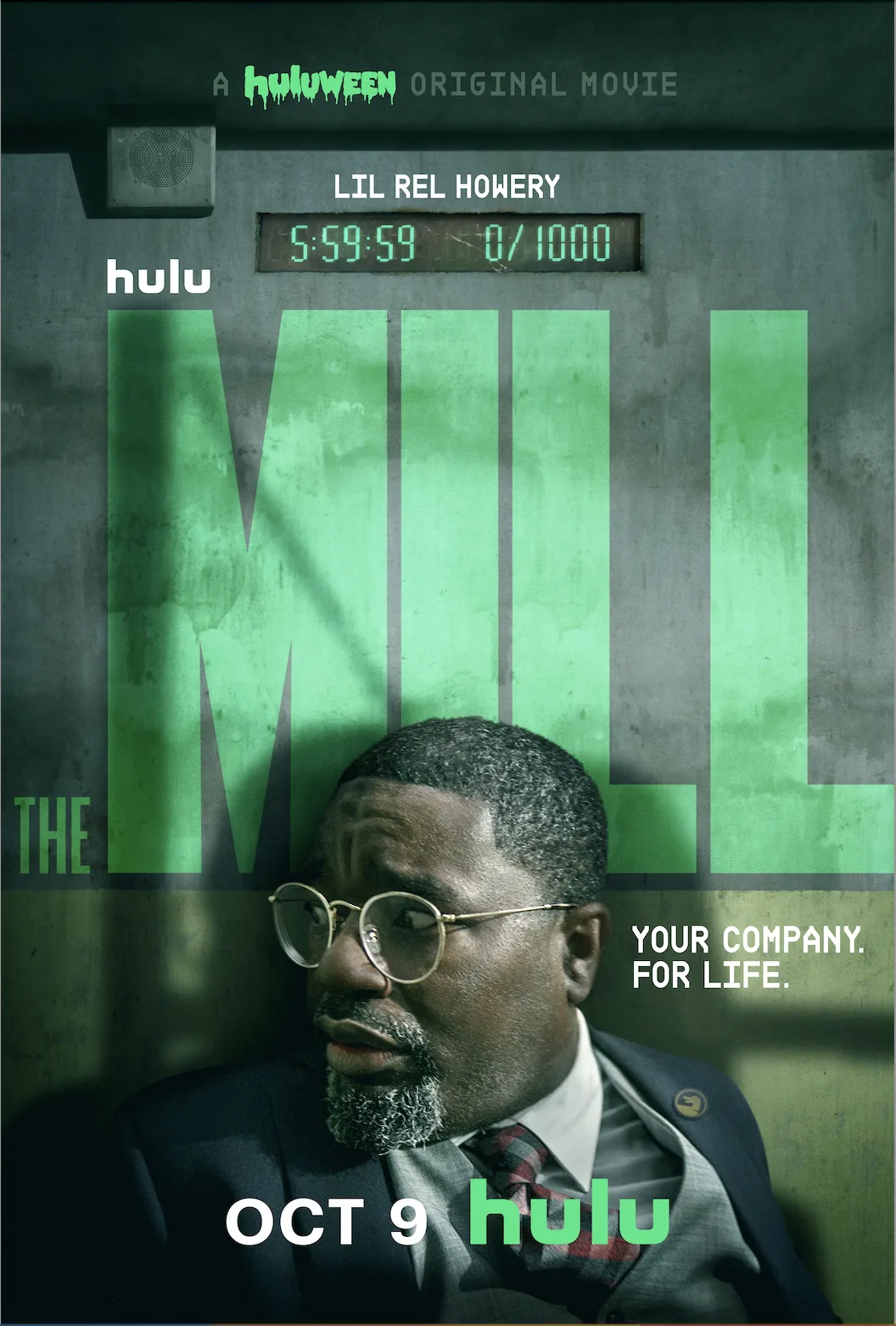Lil Rel Howery, who broke into big-screen acting as the comic relief in “Get Out” and has been expanding his on-screen prowess since, spends a good chunk of “The Mill” pushing a heavy stone in a small circle. That’s the main tension for this lackluster horror experiment from director Sean King O'Grady, which has Howery trying his hand at existential horror and leading a (mostly) one-man show. Also serving as a producer, it’s Howery’s take on cog-in-the-machine projects like “Severance” and “Squid Game,” though the promise stops right about there.
Pushing this ancient grist mill is just another day of labor for Howery’s broken, beaten-down Joe, who wakes up inside an open-air prison of three concrete walls. The mill is in the middle, and he must subsist only on cafeteria food that’s dumped through a little slot: wrapped-up sandwiches, a bottle of water, and chips. He’s thrown into this mysterious setting, still wearing the suit he has donned for ten loyal years. The company that Joe works for, the omnipotent, Amazon-like Mallard, is his faceless master who only presents themselves with a cheery voice. They play their commercials for him when not playing through Kubrick-beloved classical cuts, hinting at a cold, fascistic rigidity. Each night, Mallard kills one of his co-workers for underperforming.
The script by Jeffrey David Thomas clearly comes from an angry place about dehumanizing workforce mentalities, including companies that thrive on the hard labor of people who are only numbers to their wealthy masters. In the minds of the powerful few, loyalty from the interchangeable is hardly different from submission. To paraphrase how Roy Wood Jr. (quoting Doug Herzog) just left his job at “The Daily Show” last week, “You don’t own these jobs. You rent them … No matter how long you’re there, you’re just passing through.” These ideas of anonymity and manipulation within Thomas’ script are dulled by their obvious referencing here, and by horror cinematography that’s just too underlit to be effective.
Initially, Joe tries to do a good job and to be an overachiever. But while this earns him a gift—a pen with his name engraved—it also makes for a problem for the others to match. “The Mill” grows from an existential problem of having no exit to untangling worker psychology, presenting it in such a dystopian setting. When Joe needs motivation to reach his quota (initially 50 minimum full circles throughout his 16-hour demanded work day), he has flashbacks to his wife and the baby she’ll soon give birth to.
“The Mill” plays a dangerous game with its single location and single on-screen actor, in that it mixes such limits with a repetitive act and also a mundane work environment. For all of its life and death stakes, accentuated by screams Joe hears every night, the course of events are too plodding. The weight of its workforce metaphor becomes just like the mill in the movie, too heavy to be moved aside from just a few steps at a time, with the movie committed to making it work. A lot of the exposition gaps are filled in by one of the voices that Joe can hear on the other side of the wall, this one provided by Patrick Fischler.
Howery is the center of this movie and also one of its producers. It’s clear “The Mill” has value to him as an endeavor to push himself as an actor, which is compelling given how busy he’s been the last few years in comedy and drama. But “The Mill” shows that he’s not yet comfortable with portraying such physical and emotional turmoil; he’s just not able to provide the necessary force behind Joe’s wails, heavy breathing, and moments of disbelief. Howery is strong as an everyman, so even though he’s not sucking us in from the script’s ominous beginning, he is easy to root for. But his awkwardness in the role shows that his dramatic abilities are still a work in progress.
“The Mill” joins last week’s “Appendage” as another feature from Hulu’s “Huluween,” which so far has been an informal event to make place for original indie-budgeted genre features that wouldn’t get a theatrical release in 2023. So it’s intriguing, if not commendable, that an unusual story like “The Mill” got made, but it struggles to take on a more significant life as a parable with concrete parallels to real work life. It also doesn’t help that the final product is 105 minutes long when it has the ideas and the visuals to satisfy about half of that runtime. Instead of gradually winning over the viewer, “The Mill” tests your patience. And instead of achieving a poignant fury, the film’s inspiration runs out of energy, long before Howery’s Joe decides that enough is enough.
Now playing on Hulu.




















